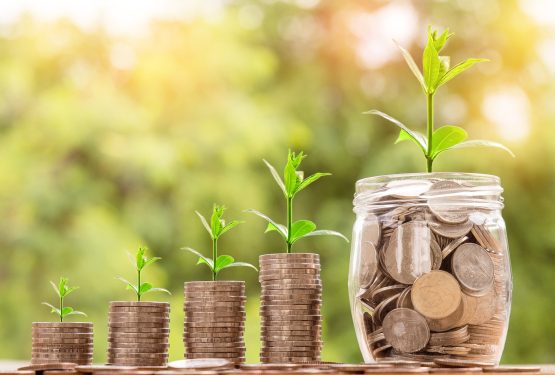Five simple household tips for less energy consumption
Pandemic, inflation, Russia's war against Ukraine. Three factors that are also causing energy prices to skyrocket. In addition to natural gas and fuel, these are mainly costs for electricity, water and heating. The construction and environmental technology company Rabmer gives five tips on how to save money with efficient appliances and conscious use.
The war in Ukraine in particular is currently pushing energy prices to worrying heights. The fear of the next energy bill is already causing many Austrians great concern. No wonder, as most energy in European households is used for heating (63.6 percent), hot water (14.8 percent) and lighting and household appliances (14.1 percent). The rest is used for cooking (6.1 percent) and cooling (0.4 percent). "To save energy quickly and easily and reduce costs, a combination of state-of-the-art technology and practical knowledge is recommended," explains Rabmer Managing Director Ulrike Rabmer-Koller.
Heating with brains
It doesn't have to be 24 degrees - a room temperature of 21 or 22 degrees is perfectly adequate. In the bedroom, 16 to 17 degrees is even sufficient. The temperature can be conveniently regulated with a room thermostat and it is also advisable to lower the temperature during the night or at certain times. Every degree less saves around 6 percent on heating costs. Proper ventilation also saves energy: ventilate briefly but vigorously every 2 to 3 hours with the windows wide open. Avoid tilting windows in winter, as this leads to unnecessarily high heat loss.
Showers 2.0
In Austria, an average of 80 liters of hot water per person per day is used for personal hygiene, which also means high costs for water, energy and waste water. It is well known that a shower uses significantly less water and energy than a full bath. But you can also make additional savings when showering. In most cases, however, this is at the expense of comfort: commercially available economy shower heads reduce the flow rate and thus save hot water, but the showering experience suffers. An alternative to this is Ecoturbino, a system that saves water and energy without reducing shower comfort. Behind this is a sophisticated technology from Rabmer, which - simply put - creates a highly turbulent mixture of water and air, thus reducing water and energy consumption by around 40 percent without reducing the intensity of the shower jet. "A four-person household saves up to 400 euros per year and the investment pays for itself within two months in this case," explains Rabmer Managing Director Ulrike Rabmer-Koller. The installation of Ecoturbino is not only worthwhile for private individuals, but also for companies, student or retirement homes, hospitals, schools, fitness centers or sports clubs: a hotel with 100 rooms, for example, saves around 13,000 euros a year.
Cool, but not too cool
Refrigerators and freezers require energy all the time and are real power guzzlers. It is therefore advisable not to set the appliances too cold: "Six degrees for a fridge and minus 18 degrees for a freezer are absolutely sufficient," says Rabmer-Koller. It is also advisable to place the appliances in a cool place, away from heat sources such as radiators or ovens. Warm food should be completely cooled down before it goes into the fridge. If you can do without frozen food altogether, you save twice as much: refrigerators without a freezer compartment consume around 25 percent less electricity.
The hidden enemy limescale
Many people would not suspect that limescale could be a reason why energy costs are rising. But the fact is: "For every millimeter of limescale in pipes, heating rods or heat exchangers, the energy costs for heating water increase by six to seven percent," explains Rabmer-Koller. The reason for this is that limescale deposits insulate the heat from water that is to be heated for hot water preparation. Heating systems and other household appliances that are affected by limescale have to work harder to achieve the desired performance, which in turn leads to higher energy consumption and additional costs.
Limescale also damages water pipes and tubes. "In short: limescale costs you money," says Rabmer-Koller. Prevention is therefore the order of the day. As an alternative to conventional descaling systems, the Rabmer Group offers environmentally friendly limescale and corrosion protection with its patented Aquabion solution. The device is based on "zinc sacrificial anode technology", which has also proven itself in corrosion protection. Zinc ions are released into the water, which bind with the limescale molecules. This makes the limescale non-sticky and prevents it from sticking to pipes, appliances and surfaces. A positive side effect: Aquabion not only protects against limescale, but also against corrosion.
Household check
In general, a change in household management can significantly reduce energy levels. When cooking, always choose a pot that fits exactly on the hob. This reduces energy consumption by around two thirds. A positive side effect is that the cooking time is also shorter and the food is on the table more quickly. The next opportunity to save is when washing up: The dishwasher should only ever be fully loaded and - if available - run on the energy-saving program. Although the washing time is longer, the energy consumption is also significantly lower. The same applies to washing machines.
Last but not least, it is also worth upgrading the lighting in your own four walls. Modern LEDs not only score over traditional light bulbs with their higher energy efficiency (up to ten times more efficient) and long service life, they also illuminate rooms more brightly. This has an impact on the killer argument par excellence: Replacing old technologies with LED lamps enables energy and cost savings of up to 90 percent.
